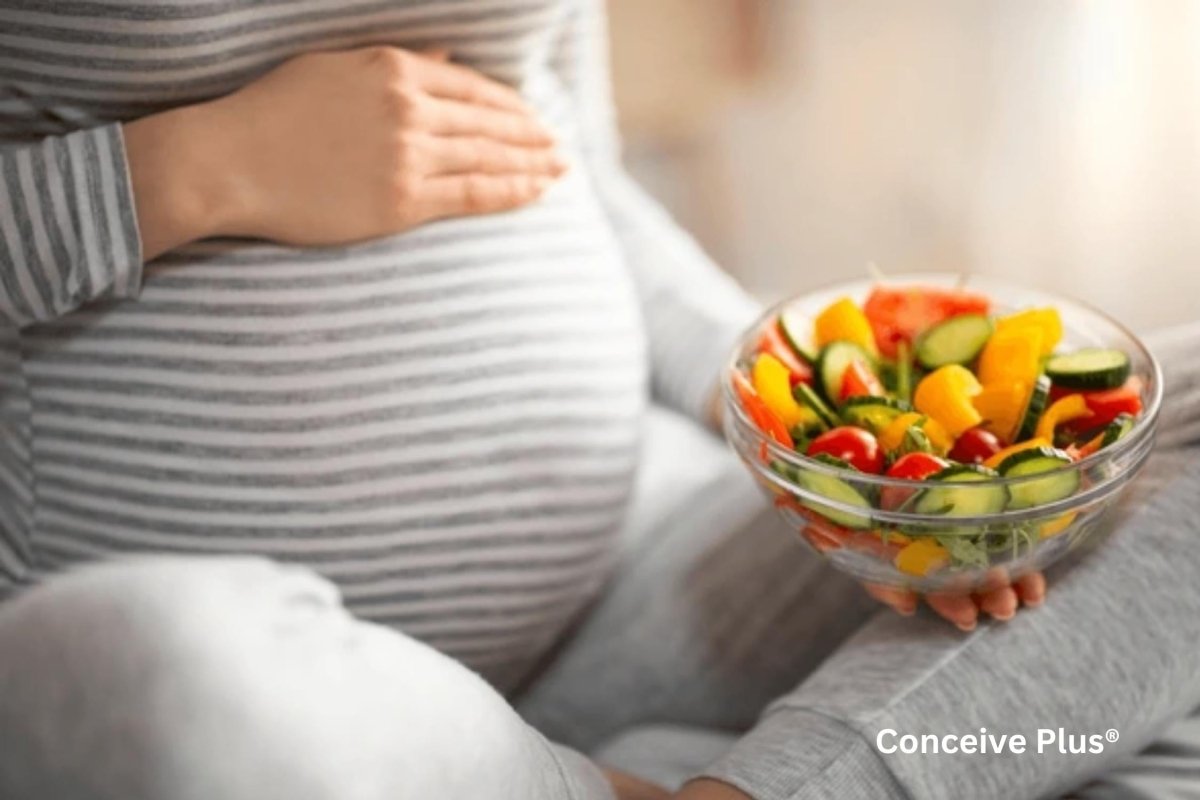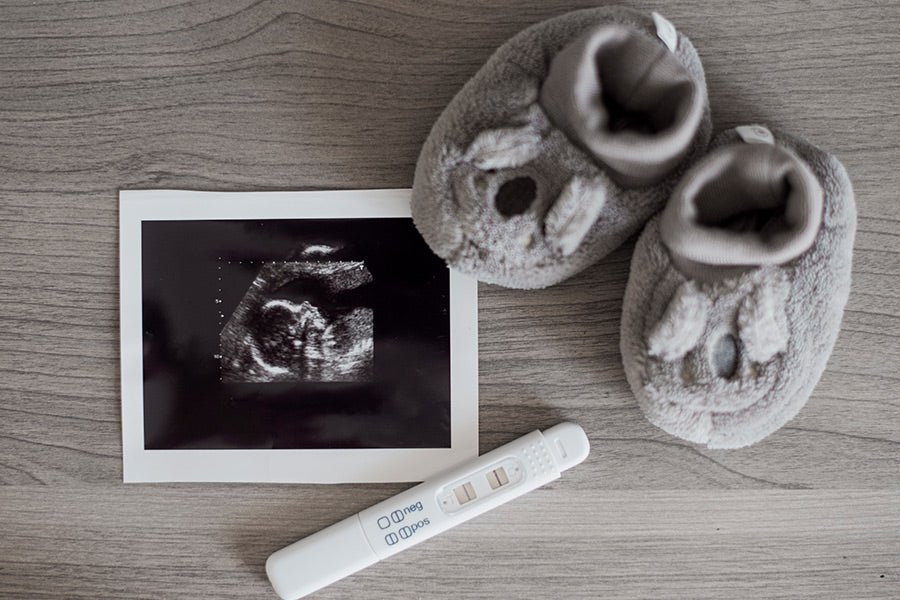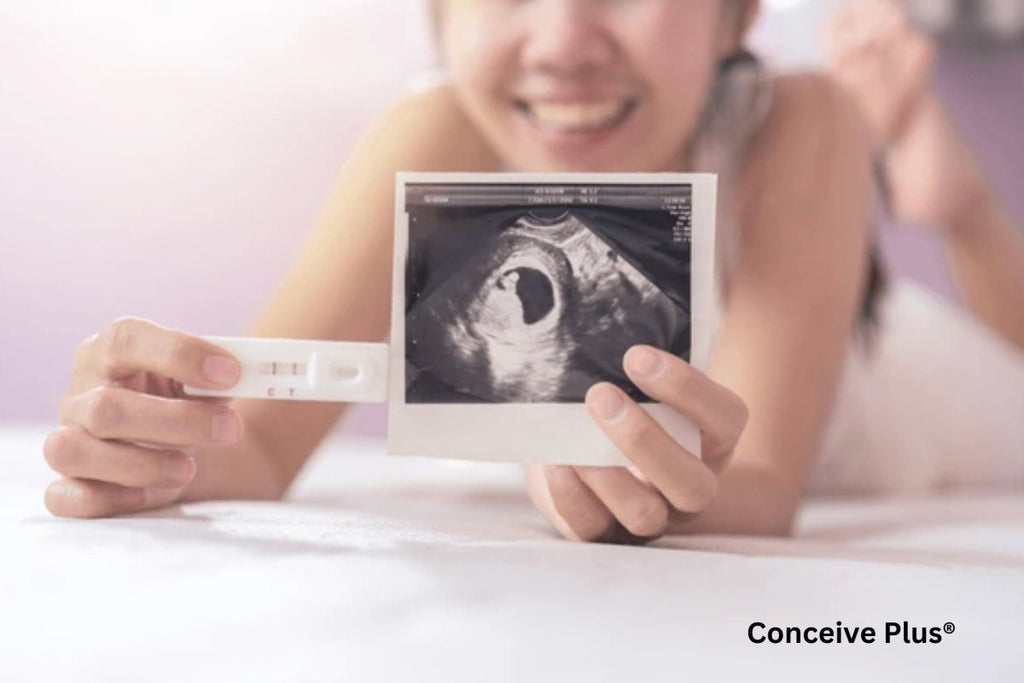Vitamins to Help Get Pregnant and Boost Fertility Naturally

Sometimes people want vitamins to help get pregnant so they can prepare their bodies for the possibility of new life. This approach might include exploring the best fertility pills to get pregnant or simply adding healthier foods to a daily routine. It can be complicated, though. Some individuals focus on balanced diets, while others look at supplements. And so many factors matter in fertility, from hormones to lifestyle. The following sections describe different nutrients, including lesser-known minerals, plus tips on how these might help people who want to conceive. Incorporating a well-structured fertility diet meal plan can further support reproductive health by ensuring the body receives essential vitamins and nutrients needed for conception.
Understanding the Value of Key Nutrients
Fertility involves a multitude of processes. Hormone regulation, energy production, and cell maintenance all connect to vitamins and minerals. Many who explore the best fertility supplements find that bridging nutritional gaps is beneficial. Others notice improvements by including the best fertility supplements for women as part of a broader plan. But each person is unique. So one must figure out what fits personal needs.
Some check out the best fertility vitamins and best supplements for fertility if they suspect their diet alone may not do the job. There's no single magic formula, though. A balanced approach remains key.
Manganese
Manganese helps metabolize certain nutrients and supports healthy bones. Some research, though limited, suggests it might aid fertility. One older study found that diets low in manganese correlated with a higher possibility of missing ovulation [1]. Another pointed to how it can affect hormonal activity in the brain. Whole grains, nuts, cucumbers, and leafy greens often supply manganese. Consistent intake, combined with other minerals, may keep the reproductive system more stable.
Folic Acid for Healthy Conception
Folic acid for fertility is frequently mentioned, but why is it so valued? Folate (or folic acid) belongs to the B9 group and serves as a building block for new cells. Women wanting to conceive might start it at least one month before pregnancy because it also helps lower neural tube issues in a developing fetus [2]. The recommended amount is about 400 micrograms daily. This essential nutrient can even help with outcomes in fertility clinics, according to studies. Leafy greens, beans, and seeds have folate too. Additionally, the benefits of folic acid for non pregnant individuals include supporting red blood cell production, promoting brain function, and reducing the risk of heart disease.
B-Complex and Additional Vitamins
The B family is broad. It includes B1, B2, B3, B5, B6, B7 (biotin), B9 (folate), and B12. These all can factor into hormone or metabolic health. Some people investigating conceive pills or other nutritional formulas discover these vitamins are staples. B6 may help regulate monthly cycles, while B12 helps with red blood cell formation [3].
Iodine
Iodine is often recommended for supporting thyroid function, which directly influences fertility hormones. Certain folks with unexplained infertility see improvement when they ensure adequate iodine [4]. It's found in seafood, iodized salt, or dairy. However, too much can create trouble, so any plan to supplement might be safer if discussed with a doctor.
Essential Minerals for Reproductive Health
Minerals are building blocks for different body processes. They can affect male and female reproductive systems. Some do turn to drugs to ovulate when there's a diagnosis of ovulatory disruption, but stable mineral intake is also crucial. Each mineral has a part in hormone production or organ maintenance, so it’s not something to overlook. Many people seek vitamins to get pregnant fast if they believe nutritional gaps might be slowing conception. The outcomes can vary, but filling those gaps often benefits overall reproductive health.
Zinc
Zinc is needed for numerous aspects of fertility. It helps with egg quality, sperm health, and hormone regulation. Because it offers antioxidant properties, it might safeguard eggs and sperm from excessive stress [5]. Foods like beef, poultry, and oysters are well-known sources. When diets lack these, a supplement might be indicated. Some call it part of fertility enhancing vitamins since it’s known to enhance certain reproductive tasks.
Iron
Iron is needed for red blood cells that carry oxygen through the body. Exhaustion is one symptom of low iron, which can hinder one’s ability to conceive. Women lose iron monthly through menstruation, so not getting enough can be detrimental [6]. Recommended sources: red meat, chicken, fish, beans, spinach, and blackstrap molasses. People sometimes notice iron in fertility pills or in general prenatal supplements. Topping up can support overall energy.
Calcium
Calcium is familiar for strengthening bones and teeth, but it also ties in with muscle function, including those linked to reproduction. Adequate calcium could reduce ovulatory issues and help maintain healthy estrogen levels [7]. It can come from dairy, broccoli, or almonds. If the diet is lacking, supplementation might step in. When pregnant, a baby’s skeletal growth can demand plenty of this mineral.
Vitamin D
Vitamin D helps the body absorb calcium, but it does more. There's evidence linking low vitamin D in men to increased infertility [8]. In women, deficiency might hamper egg quality or cell growth. People can create vitamin D by being in sunlight. In foods, it’s in fatty fish, fortified cereals, or certain milks. Some find a supplement beneficial, especially in regions with minimal sunshine. This nutrient might pop up in fertility pills for women or men’s products.
Magnesium
Magnesium underpins hundreds of body reactions, including muscle and nerve function. It also influences metabolism of carbohydrates and proteins. Some data link magnesium levels with better birth outcomes [9]. Almonds, cashews, seeds, and spinach are decent sources. Because modern diets can lack magnesium, supplementation is occasionally suggested. This mineral could appear in medicine to get pregnant fast or as part of broader fertility regimens.
Antioxidants and Hormone Stability
Antioxidants help minimize free radical damage, which can degrade eggs and sperm or disrupt hormone signals. Many people add them when exploring over the counter fertility drugs or more natural routes. A balanced antioxidant intake can create a better environment for conceiving, so that healthy eggs and sperm are protected from stressors.
Vitamin E
Vitamin E has had historical relevance in supporting normal reproduction. It's an antioxidant that may help keep cervical mucus healthy and reduce certain complications [10]. Foods such as bell peppers, avocados, seeds, nuts, and some oils can deliver vitamin E. If levels are low, a fertility supplement that includes it may be beneficial. But it’s usually combined with other vitamins and minerals for a more well-rounded approach.
Vitamin C
Vitamin C stands out because it helps iron absorption. That’s important if a prospective parent struggles with anemia. It’s also an antioxidant that helps defend against cellular harm [11]. Common sources include oranges, bell peppers, and strawberries. Some short on produce might rely on a supplement. It’s often included in packages labeled as fertility medications or general nutrient combos.
Amino Acids that Support Conception
Amino acids are protein components. They can help with blood flow, hormone synthesis, or stress tolerance. People looking for ovulation drugs might also consider whether amino acids could be part of the puzzle. L-carnitine and L-arginine are two that often appear in fertility discussions. The first may boost sperm mobility, and the second can encourage healthy uterine blood flow [12]. Neither is a magic bullet alone, but they might assist the body’s own processes.
Herbs and Plant-Based Extracts
There are many herbal or plant-based additions in the fertility world. Some people attempt them with or without ovulation medication or ovulation medicine. Items like ashwagandha, Maca, or ginseng are examples. They can help moderate stress or energy and might even improve libido [13]. But results vary. It’s advisable to double-check with a professional about potential interactions or side effects.
Biotin
Biotin, or Vitamin H, is less frequently discussed in fertility contexts, but it does matter for energy metabolism and might help egg quality. Studies also show it can aid men’s sperm count [14]. Good sources are eggs, nuts, seeds, sweet potatoes, and mushrooms. Some folks are short on biotin, so a daily dose might help them maintain hormonal balance.
Choline
Choline can help fetal development, so it’s beneficial for those who want to conceive or are pregnant. It’s also linked to improved ovarian function and hormone support, possibly benefiting people with endocrine concerns [15]. Liver, egg yolks, and fish are major sources. Some prefer to take choline as a stand-alone supplement if they rarely eat those foods. In synergy with other nutrients, it can encourage a robust environment for pregnancy.
Some prefer vitamins to help conceive because they may encourage hormone stability and support the body’s natural preparations for pregnancy, especially when combined with diet and lifestyle efforts.
Over-the-Counter Options and Fertility Supplements
Some individuals hope to find free pills to get pregnant fast, though that’s rarely feasible. Over-the-counter items can still be helpful if they’re reputable. They typically contain a blend of vitamins, minerals, and sometimes herbs. Those products might be labeled as ovulation drugs or as supplements to boost fertility. One has to check the ingredients for potency and safety. If in doubt, ask a qualified provider.
It’s also possible that a couple decides to add supplements to get pregnant once they confirm a nutritional gap. These solutions can fill missing spots from daily meals, especially if busy schedules make meal planning tough. A well-chosen supplement can blend vitamins, minerals, antioxidants, and more, leading to better coverage of fertility requirements.
Lifestyle Factors for Better Chances
Lifestyle exerts a big impact. Smoking, high stress, or insufficient rest may hinder results, even if using supplements to help fertility. Weight management matters, too. People either underweight or overweight may encounter hormone fluctuations [16]. Meanwhile, moderate exercise helps circulation, which might enhance the effect of supplements to help get pregnant.
A diet featuring fresh produce, lean proteins, and whole grains can enhance the impact of these efforts. Some also emphasize hydration. Body processes, including hormone signals, can suffer if hydration is lacking. And certainly, balancing caffeine or alcohol intake might yield improvements as well.
Combining Nutrition with Medical Guidance
Not all fertility struggles resolve through nutritional fixes alone. If issues persist, a doctor might investigate possible blockages, low sperm counts, or other conditions. They might prescribe advanced approaches or discuss fertility pills for women, if relevant. Alternatively, men might be advised to do sperm analysis.
When needed, a combination of healthy nutrition, ovulation medication, and specialized interventions might offer the strongest route. This synergy often yields better outcomes than any single measure alone. Others lean on vitamins to help fertility to ensure they maintain balanced nutrient levels, which can strengthen chances of egg fertilization or healthy sperm development.
The Bottom Line
Consuming vitamins to help get pregnant can be an important step in preparing the body for a future pregnancy. A variety of nutrients—like folate, iron, zinc, magnesium, calcium, iodine, and vitamins C, D, and E—contribute to healthier reproductive functions. Biotin, choline, and manganese also show potential. Some folks also explore things like the best fertility pills to get pregnant or carefully chosen combos of minerals, amino acids, and plant extracts.
The journey might include lifestyle changes, medical consultations, or attempts with supplements to increase fertility, plus adjustments in daily habits. The overarching theme, though, is about creating a supportive environment for eggs or sperm and the entire reproductive system. These steps can improve fertility odds, though personalized medical advice remains a good idea. Focusing on vitamins to help get pregnant is a solid way to lay groundwork for tomorrow’s baby plans.
FAQs
What about taking vitamins to boost fertility versus medications?
Both can have roles. Sometimes a healthy nutrient balance is enough. Other times, one might try medical help or ovulation drugs to address deeper challenges.
Any chance of finding free pills to get pregnant fast?
In some places, partial programs or discounts might exist, but outright free solutions are not typical. Verification is always recommended.
How about over the counter fertility drugs used in place of actual medication?
They may help some individuals, but specific diagnoses may need prescription support or more specialized care. Checking with a professional is wise.
Are there any vitamins for fertility that directly guarantee conception?
No. Balanced intake supports health, but no single nutrient automatically leads to a pregnancy. It's best to maintain realistic expectations.
Might vitamins to increase pregnancy help with repeated miscarriages?
They might assist in general health and reduce certain risk factors, but repeated miscarriages can have multiple causes. Professional evaluations are still crucial.
Citations
- Office of Dietary Supplements - Manganese.. Available at: https://ods.od.nih.gov/factsheets/Manganese-HealthProfessional/#:~:text=Manganese%20is%20an%20essential%20trace,carboxylase%20%5B1%2C2%5D.
- Greenberg, J. A., Bell, S. J., Guan, Y., & Yu, Y. H. (2011). Folic Acid supplementation and pregnancy: more than just neural tube defect prevention. Reviews in obstetrics & gynecology. Available at: https://pmc.ncbi.nlm.nih.gov/articles/PMC3218540/
- Watanabe F. (2007). Vitamin B12 sources and bioavailability. Experimental biology and medicine (Maywood, N.J.). Available at: https://pubmed.ncbi.nlm.nih.gov/17959839/
- Zimmermann M. B. (2009). Iodine deficiency. Endocrine reviews. Available at: https://pubmed.ncbi.nlm.nih.gov/19460960/
- Fallah, A., Mohammad-Hasani, A., & Colagar, A. H. (2018). Zinc is an Essential Element for Male Fertility: A Review of Zn Roles in Men's Health, Germination, Sperm Quality, and Fertilization. Journal of reproduction & infertility. Available at: https://pubmed.ncbi.nlm.nih.gov/30009140/
- Milman N. (2011). Iron in pregnancy: How do we secure an appropriate iron status in the mother and child?. Annals of nutrition & metabolism. Available at: https://pubmed.ncbi.nlm.nih.gov/22123639/
- Thys-Jacobs, S., Donovan, D., Papadopoulos, A., Sarrel, P., & Bilezikian, J. P. (1999). Vitamin D and calcium dysregulation in the polycystic ovarian syndrome. Steroids. Available at: https://pubmed.ncbi.nlm.nih.gov/10433180/
- Blomberg Jensen M. (2014). Vitamin D and male reproduction. Nature reviews. Endocrinology. Available at: https://pubmed.ncbi.nlm.nih.gov/24419359/
- Makrides, M., Crosby, D. D., Bain, E., & Crowther, C. A. (2014). Magnesium supplementation in pregnancy. The Cochrane database of systematic reviews. Available at: https://pubmed.ncbi.nlm.nih.gov/24696187/
- Ruder, E. H., Hartman, T. J., & Goldman, M. B. (2009). Impact of oxidative stress on female fertility. Current opinion in obstetrics & gynecology. Available at: https://pmc.ncbi.nlm.nih.gov/articles/PMC2749720/
- Hemilä H. (2017). Vitamin C and Infections. Nutrients. Available at: https://pubmed.ncbi.nlm.nih.gov/28353648/
- Lenzi, A., Lombardo, F., Sgrò, P., Salacone, P., Caponecchia, L., Dondero, F., & Gandini, L. (2003). Use of carnitine therapy in selected cases of male factor infertility: a double-blind crossover trial. Fertility and sterility. Available at: https://pubmed.ncbi.nlm.nih.gov/12568837/
- Dording, C. M., Schettler, P. J., Dalton, E. D., Parkin, S. R., Walker, R. S., Fehling, K. B., Fava, M., & Mischoulon, D. (2015). A double-blind placebo-controlled trial of maca root as treatment for antidepressant-induced sexual dysfunction in women. Evidence-based complementary and alternative medicine. Available at: https://pubmed.ncbi.nlm.nih.gov/25954318/
- Watanabe, T., Nagai, Y., Taniguchi, A., Ebara, S., Kimura, S., & Fukui, T. (2009). Effects of biotin deficiency on embryonic development in mice. Nutrition (Burbank, Los Angeles County. Available at: https://pubmed.ncbi.nlm.nih.gov/18752930/
- Wallace, T. C., Blusztajn, J. K., Caudill, M. A., Klatt, K. C., Natker, E., Zeisel, S. H., & Zelman, K. M. (2018). Choline: The Underconsumed and Underappreciated Essential Nutrient. Nutrition today. Available at: https://pubmed.ncbi.nlm.nih.gov/30853718/
- Rich-Edwards, J. W., Spiegelman, D., Garland, M., Hertzmark, E., Hunter, D. J., Colditz, G. A., Willett, W. C., Wand, H., & Manson, J. E. (2002). Physical activity, body mass index, and ovulatory disorder infertility. Epidemiology (Cambridge, Mass.). Available at: https://pubmed.ncbi.nlm.nih.gov/11880759/













